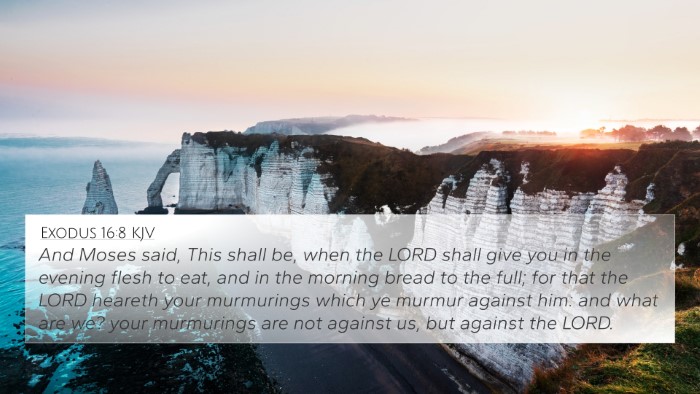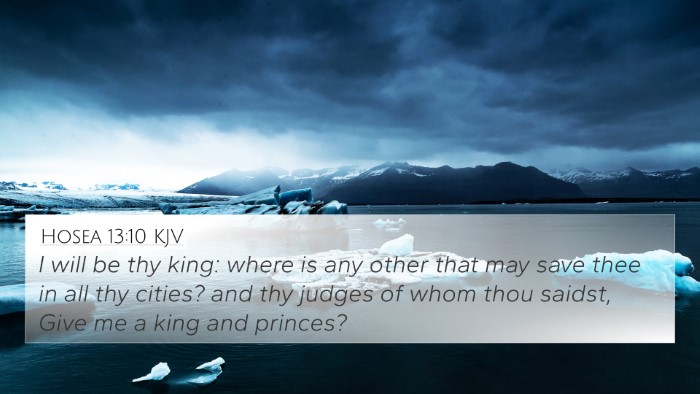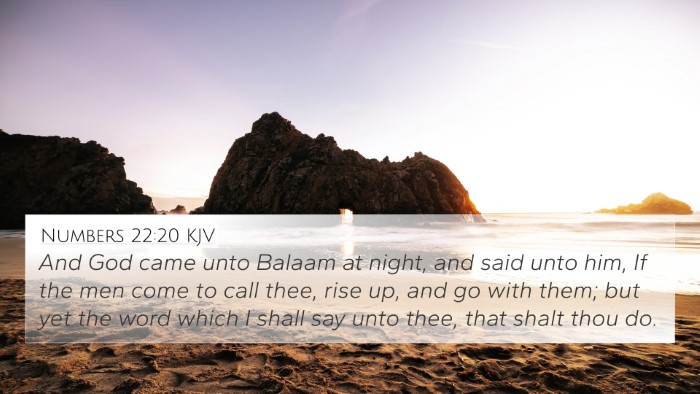Understanding 1 Samuel 8:7
Bible Verse: 1 Samuel 8:7 - "And the LORD said unto Samuel, Hearken unto the voice of the people in all that they say unto thee: for they have not rejected thee, but they have rejected me, that I should not reign over them."
Summary of Context
This verse occurs during a pivotal moment in Israel's history when the people demand a king to rule over them, rather than being governed directly by God through judges. This rejection signifies not just a desire for political leadership but also a deeper spiritual rejection of God's sovereignty.
Commentary Insights
-
Matthew Henry: He emphasizes the sorrow of God in response to Israel's request. God's reaction demonstrates divine sensitivity to the rejection of His authority. Henry highlights the implications of choosing a human king over a divine ruler and the consequences that would follow.
-
Albert Barnes: Barnes notes the distinction between human authority and God’s sovereign rule. He argues that this shift towards human kingship represents a critical turning point for Israel, leading to a series of kings whose leadership would often stray from God’s commands.
-
Adam Clarke: Clarke offers a historical perspective, explaining the cultural context of ancient Israel and the desire to be like surrounding nations. He also points out that this desire reflects human inclination toward control and visible leadership, rather than trusting in an invisible God.
Thematic Connections
1 Samuel 8:7 has several connections to other scriptures that elaborately discuss themes of leadership, authority, and the implications of rejecting God:
- 1 Samuel 10:19: "And ye have this day rejected your God, who himself saved you out of all your adversities and your tribulations; and ye have said unto him, Nay; but set a king over us." This verse echoes the sentiments of divine rejection and the choice of a human king.
- Hosea 13:10-11: "Where is thy king now? Let them save thee in all thy cities; and thy judges of whom thou saidst, Give me a king and princes." This passage criticizes the reliance on earthly leaders rather than God.
- Isaiah 1:4: "Ah sinful nation, a people laden with iniquity, a seed of evildoers, children that are corruptors: they have forsaken the LORD, they have provoked the Holy One of Israel unto anger, they are gone away backward." This highlights the consequence of turning away from God's rule.
- Psalms 118:8-9: "It is better to trust in the LORD than to put confidence in man. It is better to trust in the LORD than to put confidence in princes." This reinforces the theme of dependence on God over man.
- John 19:15: "But they cried out, Away with him, away with him, crucify him. Pilate saith unto them, Shall I crucify your King? The chief priests answered, We have no king but Caesar." This illustrates the continuing theme of rejecting God's authority in favor of earthly powers.
- Romans 13:1: "Let every soul be subject unto the higher powers. For there is no power but of God: the powers that be are ordained of God." This reflects on the concept of God’s ultimate authority in establishing rulers.
- 1 Peter 2:9-10: "But ye are a chosen generation, a royal priesthood, an holy nation, a peculiar people; that ye should shew forth the praises of him who hath called you out of darkness into his marvelous light." This directs the believer's focus back to God's chosen leadership.
Lessons and Applications
This verse and the connected scriptures emphasize the importance of recognizing God's sovereignty in our lives. The desire for human leadership is a recurring theme throughout scripture, reminding believers to place trust in God rather than fallible humans. The rejection of God's authority has consequences, both historically for Israel and personally for believers today.
Cross-Referencing and Comparative Analysis
Utilizing tools for Bible cross-referencing enhances understanding. By examining parallels and themes across different books of the Bible, one can see how the narrative of Israel’s kingship reflects broader themes regarding faith, authority, and divine sovereignty.
For those seeking a deeper understanding or preparing sermons, consider using a Bible concordance to explore related themes and cross-reference insights from both the Old and New Testaments.
Conclusion
1 Samuel 8:7 serves as a critical reminder of the Israelites' choice to turn away from God and their implications through history. Reflecting on this verse and its connections can help believers draw lessons on leadership and the importance of maintaining faith in God as the ultimate authority.
















